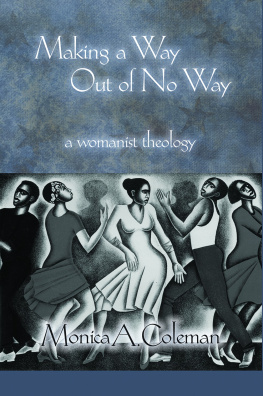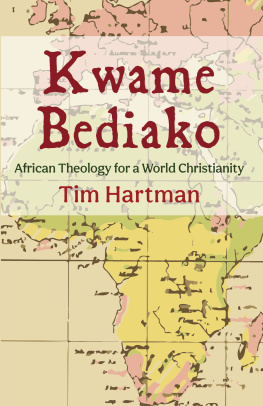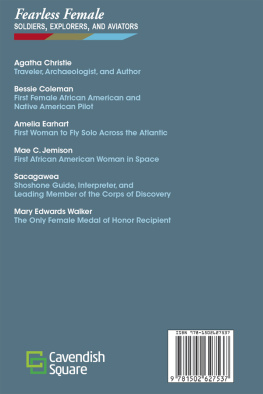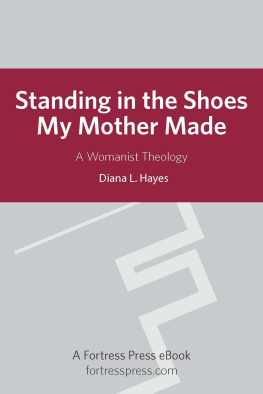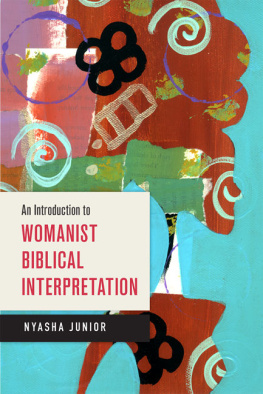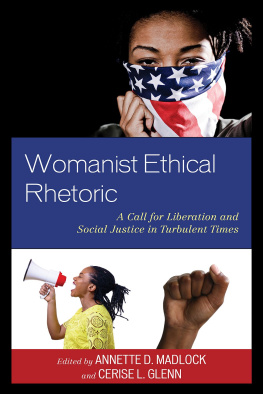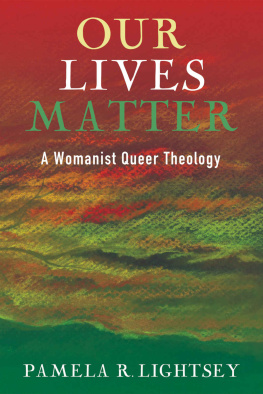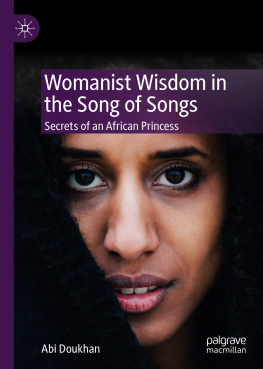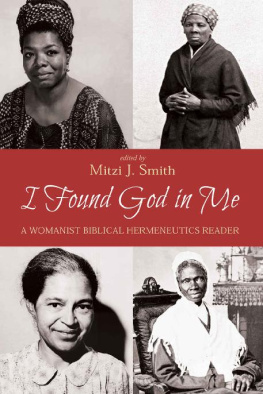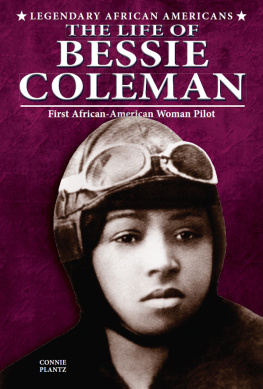Making a Way Out of No Way -- Making a Way Out of No Way
1
More Praise for Making a Way Out of No Way
Using process metaphysics as a theological framework, Monica Coleman offers a challenging constructive womanist theology. It is an important postmodern theological statement that speaks to religious pluralism and the realities of black womens lives.
James H. Cone, Union Theological Seminary, New York
This book is classic Monica Colemaninterdisciplinary, interreligious, professional and personal, cutting-edge and linked to traditions. She crafts a womanist theology interwoven with postmodern and process theologies, rooted in the Christian gospel, yet also drawing on Yoruba religion. And then we are graced with the way-out-of-no-way resulting in a vision for a communal theology.
Dwight N. Hopkins, University of Chicago Divinity School
Making a Way Out of No Way
A Womanist Theology
Monica A. Coleman
Fortress Press
Minneapolis
MAKING A WAY OUT OF NO WAY
A Womanist Theology
Copyright 2008 Fortress Press, an imprint of Augsburg Fortress. All rights reserved. Except for brief quotations in critical articles or reviews, no part of this book may be reproduced in any manner without prior written permission from the publisher. Visit http://www.augsburgfortress.org/copyrights/contact.asp or write to Permissions, Augsburg Fortress, Box 1209, Minneapolis, MN 55440.
Cover art: Dancing by Elizabeth Catlett (2003). Lithograph, 23.5 x 31.5. Elizabeth Catlett/Licensed by VAGA, New York, NY. Image courtesy of Sragow Gallery, NYC.
Cover design: Ivy Palmer Skrade
eBook ISBN: 978-1-4514-1487-5
Library of Congress Cataloging-in-Publication Data
Coleman, Monica A., 1974
Making a way out of no way : a womanist theology / Monica A.
- cm. (Innovations : African American religious thought)
Includes bibliographical references and index.
ISBN 978-0-8006-6293-6 (alk. paper)
- Womanist theology. I. Title.
BT83.9.C65 2008
230.082dc22
2008011151
This book was produced using PressBooks.com.
Contents
2
Innovations: African American Religious Thought
Katie Geneva Cannon and Anthony B. Pinn, editors
Innovations publishes creative and innovative works in African American religious thought and experience. The series highlights creatively progressive projects in Womanist and Black theology and ethics. It also encourages interdisciplinary discourse that expands understanding of African American religion and religious experience as well as the manner in which African Americans have envisioned and articulated their religiosity.
Titles in the series
Enfleshing Freedom: Body, Race, and Being
Shawn Copeland
Creative Exchange: A Constructive Theologyof African American Religious Experience
Victor Anderson
Making a Way Out of No Way: A Womanist Theology
Monica A. Coleman
Plantations and Death Camps: Race, Sin, and Human Dignity
Beverly E. Mitchell
From early essays regarding the shortcomings of black theological discourse and work on the constructive task of presenting black womens thought and life as academic resource, womanist scholarship has grown over the years. The initial struggle to have the liberative nature of religious faith and the academic merit of black womens contributions to this transformative process has expanded and is now recognized for its tremendous importance through conferences, curricula, books, articles, and a growing number of womanists working across academic disciplines. We recognize that African American women are generating some of the most creative and vital study of African American religious thought and life; and we are delighted that this series contributes to the presentation of some of these scholars.
Monica A. Coleman is one of the new voices in womanist theology. Trained in process studies, but with a commitment to the intellectual significance of African American experience, Coleman has given attention to the development of a womanist postmodern theology that speaks to faith and social responsibility in complex and creative ways. Making a Way Out of No Way is her most substantive presentation of this theology. It weaves together a variety of theoretical and methodological tools, including those underutilized in black religious studies such as process thought. This book is both academic and personal, speaking to collective realities and interior concerns but in a way that is mindful of the nuances of individual encounters and perspectives. There is in Making a Way Out of No Way an impressive blending of general, insightful concerns with Colemans personal narrative as well as serious stories and wise living of other women. In this regard this text articulates lessons culled from the work of a variety of womanists who push for a sensitive balance between the individual and the collective as a way of maintaining the integrity of personal identity as related to but not consumed by communal associations. Embedded in this book is an important question: How does one do womanist theology, and what does it mean to do this theology within the context of difference that marks the community and experiences of black women? This is not the first time Coleman has responded to this question, but this book certainly represents her most intellectually mature response. It fits well into the canon of womanist discourse, serving to further advance its creativity, challenge, and methodological/theoretical systems.
Coleman seeks to understand the dynamics of the postmodern world and the ways in which that world frames our sense of proper thinking and transformative doing. Taking seriously the call for wholeness drawn from the work of Alice Walker and the works that currently saturate the scholarship of womanist thinkers, Colemans book promotes reading the religious significance of black womens lives in ways that do not flatten it out, narrow its scope, and limit its reach. Rather, she seeks to maintain the thick and at times tense nature of religious engagement within the African American community. In a word, Coleman troubles the assumption that womanist theology can be articulated only using a Christian vocabulary and grammar, arguing instead that sensitivity to religious pluralism marks the spiritual commitments in African American communities. As Coleman remarks, In a postmodern womanist theology, I can find a language that has a rich past, resonates with spirit and memory, and evokes images particular to the experiences of black women. The book you have started to read is not only cognizant of the experiences of black women, but it is also shaped by and influenced deeply by those experiencesseeking to provide a reasonable and faith-based response to the turmoil of life.
We are pleased to have this volume in our series, and we are convinced that it marks a significant contribution to black religious studies in general and womanist scholarship in particular.
Katie Geneva Cannon
Anthony B. Pinn
Theology is autobiography. This phrase is often invoked to illustrate that our constructive theological proposals are intensely personal. They are shaped by our personal histories, our past and current contexts, the specific issues that concern us. They are shaped by whom and what we have encounteredwhat we read, whom we know, those whom we engage in conversation. And yet, as I constantly remind my students at the Lutheran School of Theology at Chicago (LSTC), theology, while personal, cannot be private. It must be something that could apply to someone other than the theologian. It should be something you would recommend to others. It should be something youd be willing to preach.

